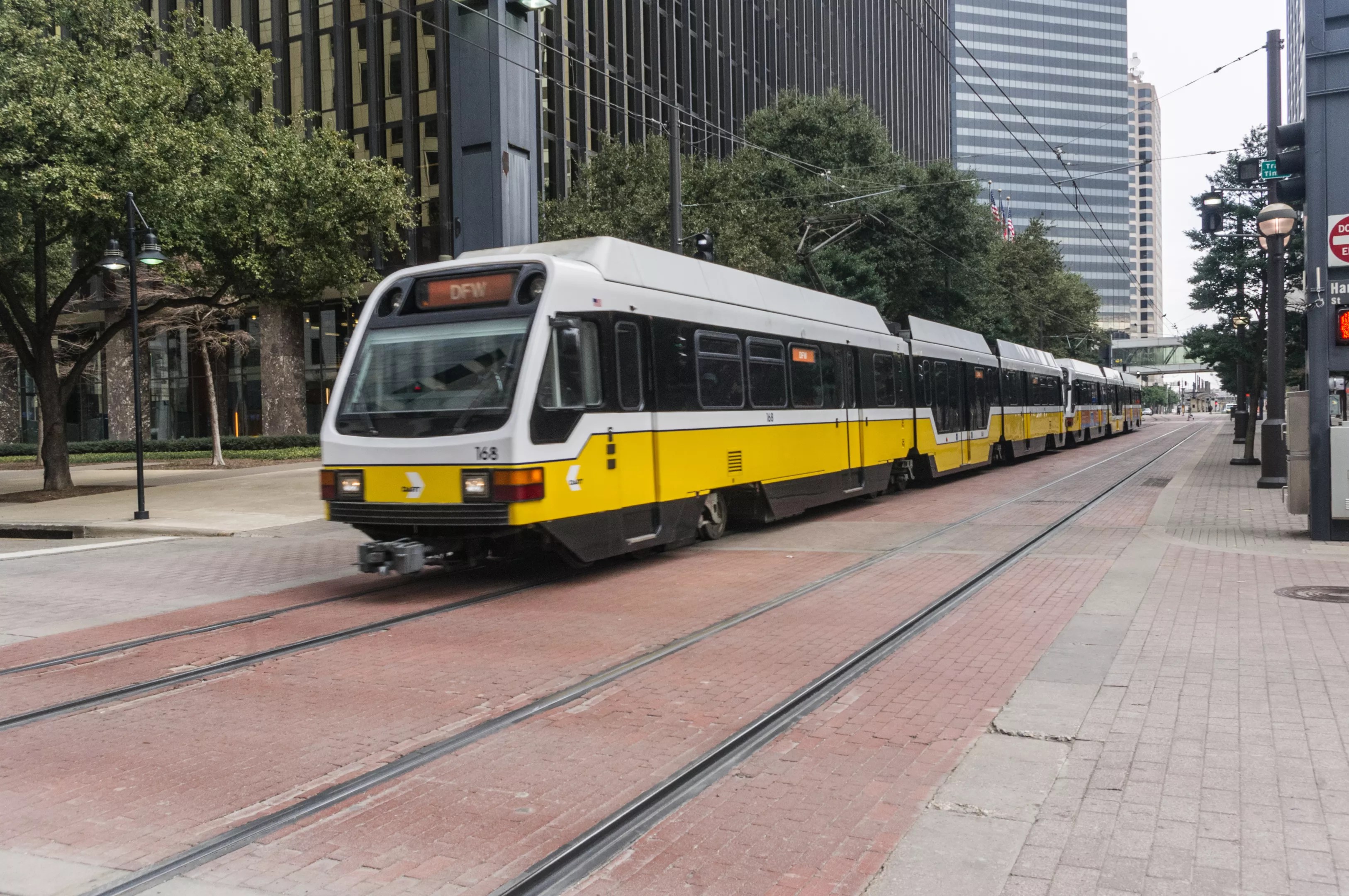
Adobe Stock

Audio By Carbonatix
Dallas Area Rapid Transit (DART) authorities issued a dire warning Friday: years of post-pandemic improvements made to the system’s buses and rail lines could be negated if a series of state bills proposing cuts to the agency’s funding are approved.
Two identical bills – House Bill 3187 filed by Matt Shaheen of Plano and Senate Bill 1557, filed by a coalition of state senators representing McKinney, Denton and Flower Mound – would allow DART member cities to reduce their contribution to the agency by 25%. DART funding currently relies on a 1-cent sales and use tax from the 13 North Texas cities included in the agency’s footprint.
The proposals come on the heels of several DART member cities asking to reduce their contribution to the transit group. If passed into law, the funding shift would be implemented Sept. 1.
Dramatic Reductions in DART Staffing Levels
Will you step up to support Dallas Observer this year?
At the Dallas Observer, we’re small and scrappy — and we make the most of every dollar from our supporters. Right now, we’re $15,600 away from reaching our December 31 goal of $30,000. If you’ve ever learned something new, stayed informed, or felt more connected because of the Dallas Observer, now’s the time to give back.
In a briefing given to the DART board of directors, DART Chief Financial Officer Jamie Adelman said the proposed funding cuts could lead to a workforce reduction of 960 positions. Nearly 500 of those positions would belong to rail and bus operators, affecting the system’s service frequency and breadth.
While Adelman said the number of DART police officers is not expected to be reduced, fare enforcement and transit security positions would likely be cut. The organization would also likely return to night-only cleanings for light rail cars, Adelman said.
“What we’re doing here with the 25% is unraveling a lot of that work that we have done over the last three years,” Adelman said. “The cleanliness of the system has been a big attraction for riders and they’ve noticed it. … We really would be seeing a reversal in these positive trends that we’ve created.”
Adelman also warned the dip in funding would likely result in the agency’s credit rating taking a hit from agencies like S&P and Moody’s.
Silver Line Impacted Before it Begins
The funding woes could also impact the DART Silver Line, a commuter rail line that has been in the works since 2019. The rail is planned to connect North Texas cities from Plano to the Dallas-Fort Worth International Airport.
While DART had planned to launch the Silver Line later this year, DART board Chairman Gary Slagel said earlier last week the agency may only be able to operate the Silver Line for “a month and a half” if the funding reduction is approved by the Legislature. In Friday’s update, Adelman confirmed planned service for the highly anticipated line would be hurt.
“We haven’t even started service yet, but it would be a reduction for what was planned originally for that service line,” Adelman said.
Emma Breuster, a 25-year-old resident of downtown Plano, told the Observer she was “really disappointed” to learn the rail line could be reduced from what was promised. Watching the Silver Line construction progress, she has looked forward to walking to the station near her apartment and riding the line into downtown Carrollton, where a group of friends meet weekly at a brewery for trivia games.
“We’ve all been super excited about this for years,” Breuster said. “This would just really suck.”
Slashed Services Ahead of the FIFA World Cup
The filed bills propose the 25% funding reduction be redirected towards a general mobility program for cities whose financial contributions to DART are not equivalent to services offered. Under the general mobility program, Adelman said the Trinity Railway Express (TRE), which runs between Dallas and Fort Worth and is owned and operated by DART, would be fully eliminated.
“The TRE is one of the primary modes that was advertised to get the FIFA World Cup here in Dallas,” Adelman said. “That would be a significant impact to the region’s plan to support such a large event.”
AT&T Stadium in Arlington is scheduled to host nine World Cup matches in 2026, the most of any host city.
Around $40 million in costs are associated with the TRE each year, and while officials discussed keeping the rail line open through the World Cup, Adelman pointed to additional bus and rail reductions that would be required to “make up that difference.”
“The World Cup service is not limited only to the service to Arlington. There is a lot of activity that will be happening at Fair Park, which we would also not be able to meet with the reduction in service,” DART CEO Nadine Lee said. “I want to make sure people understand that this is a tremendous impact.”